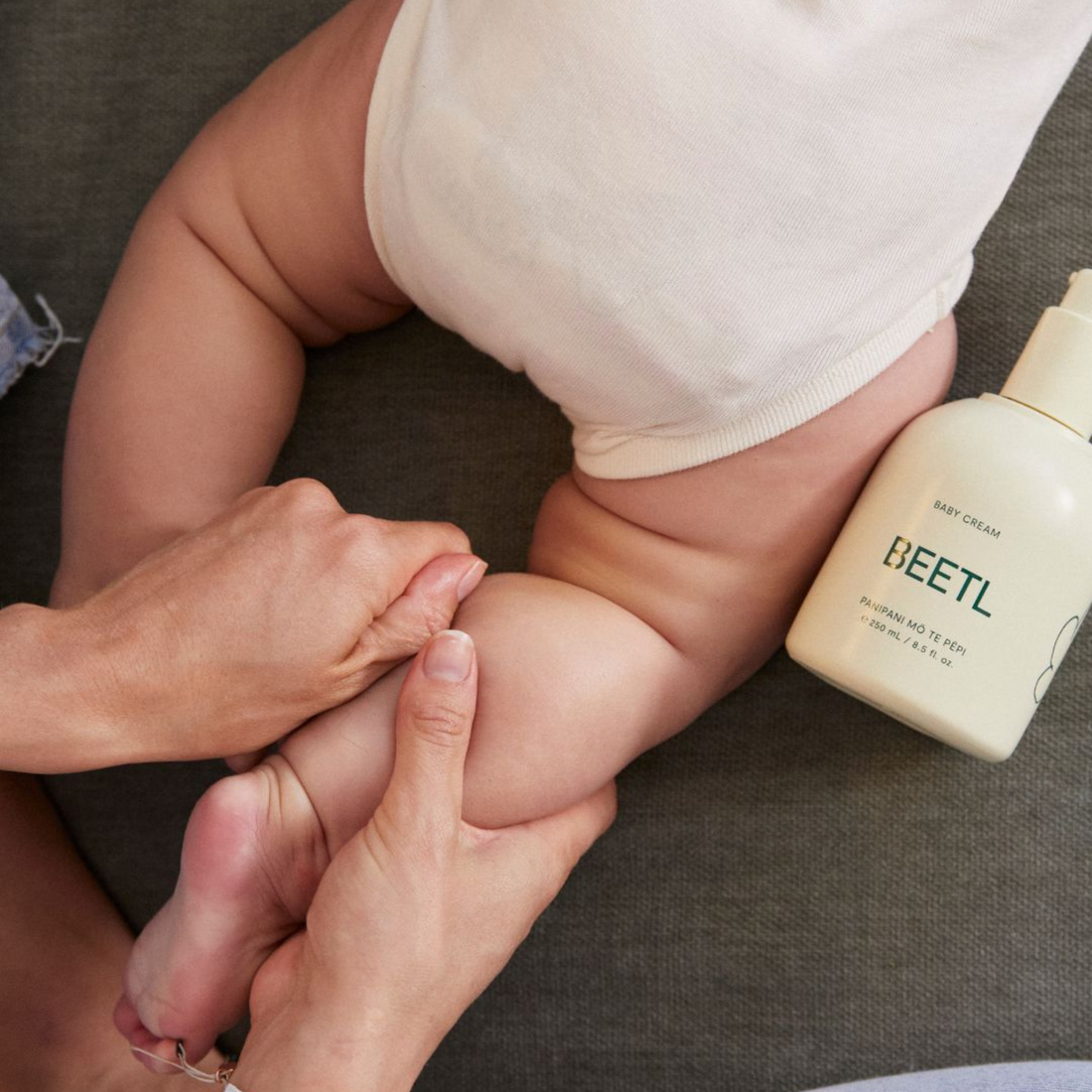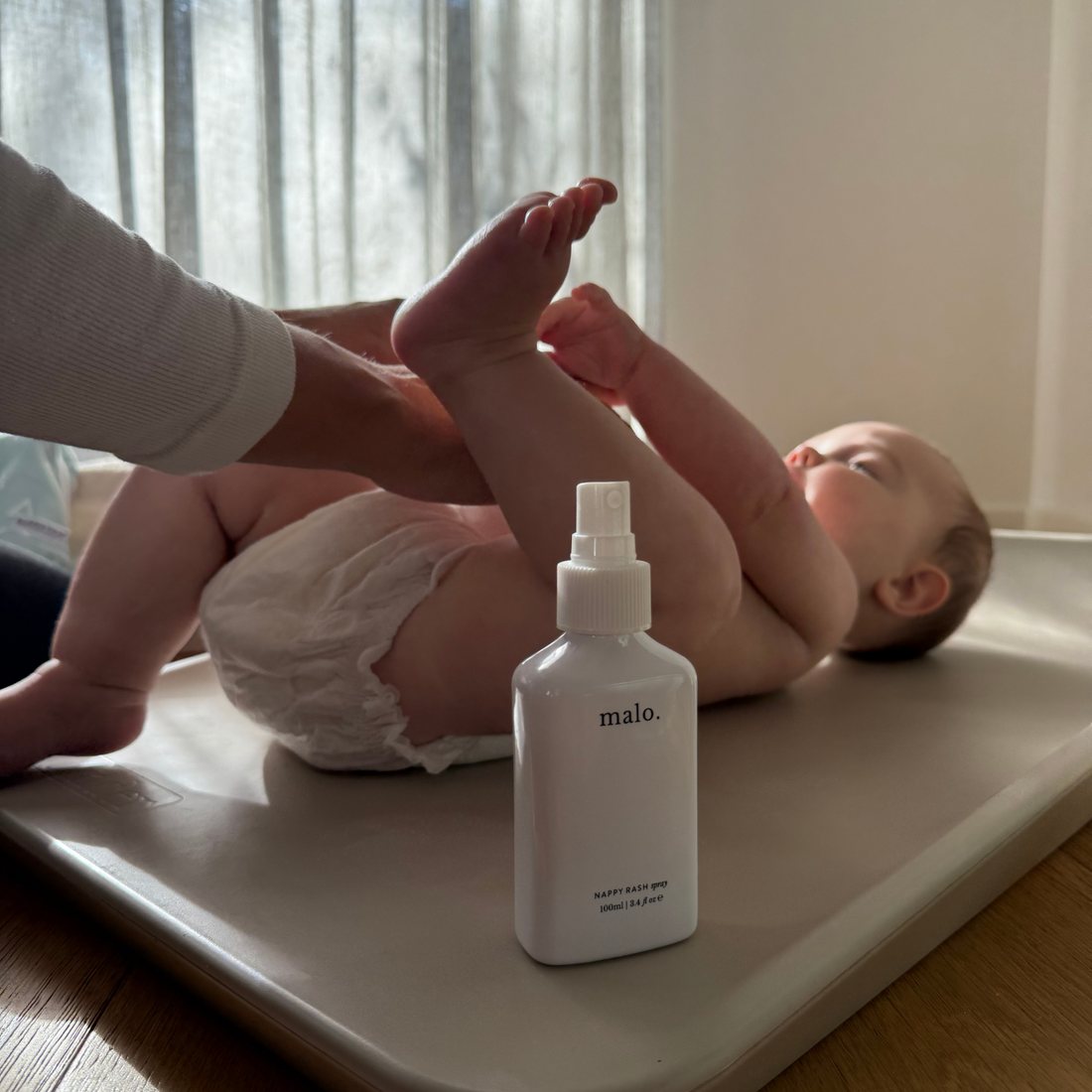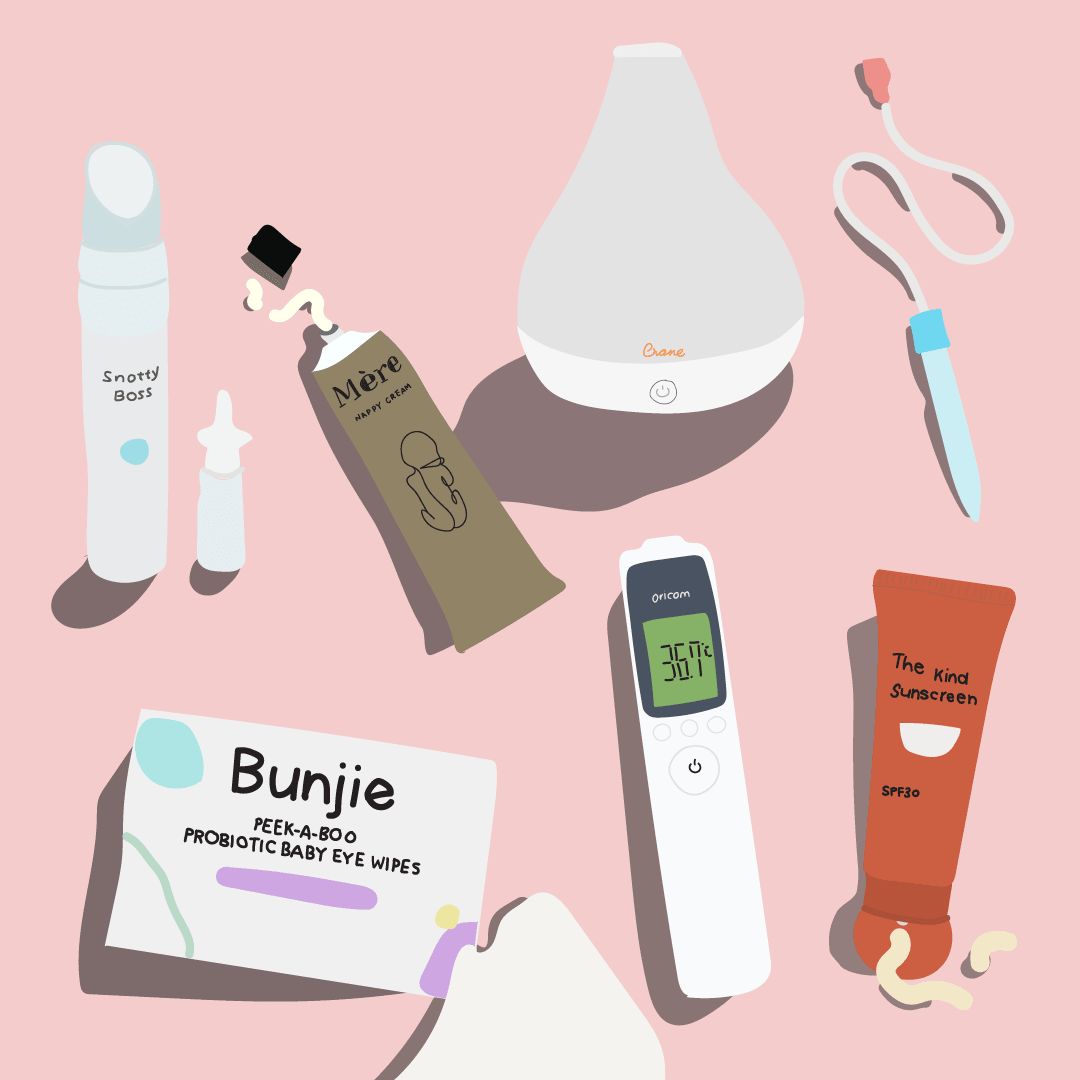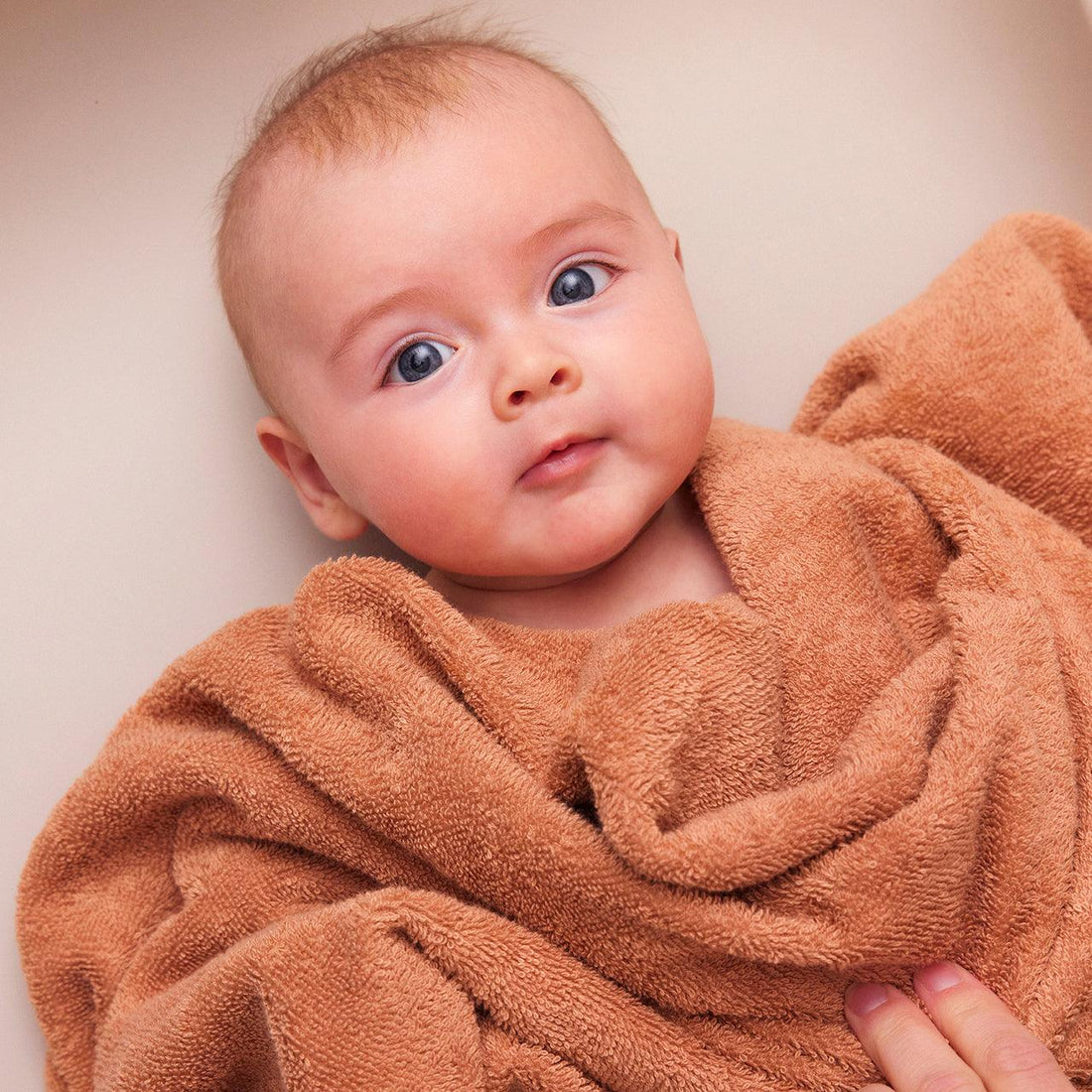

Eczema is a chronic inflammatory pruritic skin disease characterised by flare-ups and remissions affecting 30% of Australian children. It’s inherited from family members who suffer either eczema, food allergies, asthma or other atopic disorders. For 60% of cases, the onset of eczema appears in the first year of life, with 90% showing symptoms before age 5. Those who develop signs before 6 months will have a higher incidence for food allergies so it’s important to speak with your GP or paediatrician about starting solids. Most kids will grow out of eczema by the time they’re 16, which is great, but it means, even if you had eczema, you might not remember how to treat it. Kirsty Coates, founder of BEETL Skincare, started the brand when her own daughter was struggling with eczema. Using her doctor and herbalist mum’s natural, and minimalist formulations. BEETL Skincare Baby Cream and Baby Balm use soothing, nourishing ingredients proven to help irritated skin, including Calendula, Sunflower Seed Oil, and Lavender. Thirty years ago, baby powder and perfumed lotions were the norm, but now there’s a growing awareness of what goes into our products and how it affects baby skin. Parents are leaning towards cleaner, plant-based formulas and becoming more educated about ingredients. The shift toward barrier-supporting, skin-kind formulations is such a good thing, particularly for kids with sensitive skin and eczema. Here, Tessa shares what she’s learnt through product development and her own experience of parenting babes with eczema.
Why is baby skin more sensitive than older kids or adults?
Baby skin is much thinner and more delicate than adult skin. It’s still developing, which means it loses moisture faster and absorbs more of what you put on it. That’s why babies are more prone to dryness, rashes, and irritation from environmental factors, products, or even their nappies.
Do all babies have sensitive skin?
Most babies will experience sensitive skin at some point, whether it’s from teething, a change in climate, or a reaction to a product. That doesn’t mean they’ll always have sensitive skin, but it does mean it’s worth using gentle, fragrance-free skincare in those early months.
If a baby has sensitive skin, will they always have it?
Not necessarily. Many children grow out of skin sensitivities as their skin barrier becomes stronger. However, some may go on to have ongoing sensitivities, allergies, or conditions like eczema. It’s all about observing patterns and choosing skincare that supports the skin barrier without overwhelming it.
How is eczema different from just “sensitive skin”?
Sensitive skin might react to a product or feel dry in certain conditions, but eczema is a chronic skin condition that causes inflammation, itching, and discomfort. It often shows up in patches, behind the knees, on the cheeks, or in the creases of elbows.
What should parents know about identifying eczema?
If the skin is red, dry, itchy, or looks scaly and keeps coming back in the same spots, it could be eczema. Scratching can cause it to break and even become infected. Always speak to your GP or health nurse if you're unsure, it’s better to get it checked early.
How does having eczema affect a baby or toddler?
Eczema can really impact sleep, feeding, and overall comfort. Babies may be more unsettled or fussy, especially during flare-ups. For toddlers, it can affect confidence, play, and how they interact with their environment. Humidity, sweat, and heat can sometimes trigger or worsen eczema. That doesn’t mean you can’t travel, but you might want to pack cooling clothes, stay in air-conditioned spaces, and keep up a consistent skincare routine while you’re away.

Eczema skincare regime look like during a flare-up?
- Keep skin clean, but avoid long, hot baths.
- Pat skin dry gently and apply a rich, protective balm (like BEETL Baby Balm) to lock in moisture.
- Avoid harsh soaps or anything fragranced.
- Apply balm or cream multiple times a day, especially after bathing.
What about when their skin is looking good?
Consistency is key. Even when skin looks clear, hydration and protection are still important. That’s where something like BEETL Baby Cream comes in, lightweight but effective for daily use, massage, and after swimming or sun exposure.
When should you see a paediatric dermatologist?
- You should see a paediatric dermatologist if:
- Your baby’s skin isn’t improving with regular care
- You’re not sure if it’s eczema or something else
- Flare-ups are frequent, severe, or impacting their sleep or mood
- There’s any sign of infection (weeping, yellow crusts, etc.) A dermatologist can help tailor a routine and recommend treatment options specific to your child’s skin. There’s no one-size-fits-all answer when it comes to baby skin. But what I’ve learned is this: gentle, natural, consistent care goes a long way, and being in tune with your little one’s needs is the most powerful tool you have.













































































